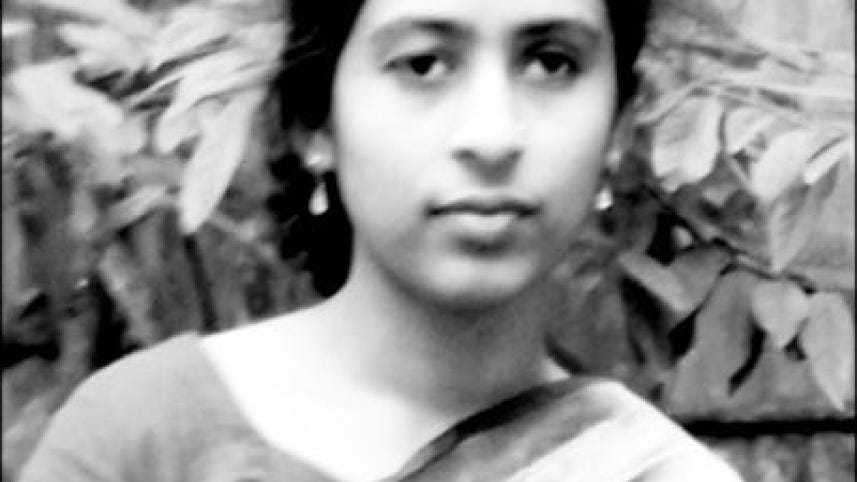Bilkis Begum is now a community advocate

“I am now in my father's house. My husband and his family members still believe that I have the disease and so do not allow me into their house. I have a one year old son, a brother and a sister. I have to earn for the entire family and also bear the treatment expenses of my ill father with my limited income from tailoring work.' Bilkis Begum told The Daily Star.”
Bilkis, a former fistula patient from Habiganj district, was diagnosed with obstetric fistula two years ago, physically she has been able to recover after receiving treatment at Dhaka Medical College. It took 15-20 days to recover. But unfortunately she has not been accepted yet by her husband and in-laws.
Divorce is a common consequence in fistula cases. Women suffering from the conditionare often ostracized by their husbands and in-laws. They are not allowed to sleep in the same bedroom as their husbands, and not allowed in the kitchen, or even touch utensils. They cannot say their prayers or touch the holy books. The stigma isolates them mentally and physically.
Thus surgical repair as such for a fistula patient is often not enough. Community leaders, imams, teachers, local government representatives may play a helpful role in their rehabilitation and reintegration.
Bilkis said that the National Fistula Centre (NFC) at Dhaka Medical College Hospital (DMCH) helped her learn how to sew, a skill she is now able to use to earn a livelihood. Staff from the NFC regularly keeps in contact with her as she has been trained on Fistula and is now working as a Fistula Advocate.
'I go door to door in different villages every week and explain what fistula is and if I detect a case I refer the affected woman to the NFC where they can get proper treatment and get cured. I have already sent four patients there and three of them were cured and one is undergoing treatment,' she informed.
She urged all to change their traditional outlook towards the women affected by Fistula. She never wants to see any woman to be made an outcaste by the society for a health condition that can be easily cured.
Interviewed by Sohel Rana.



 For all latest news, follow The Daily Star's Google News channel.
For all latest news, follow The Daily Star's Google News channel.
Comments